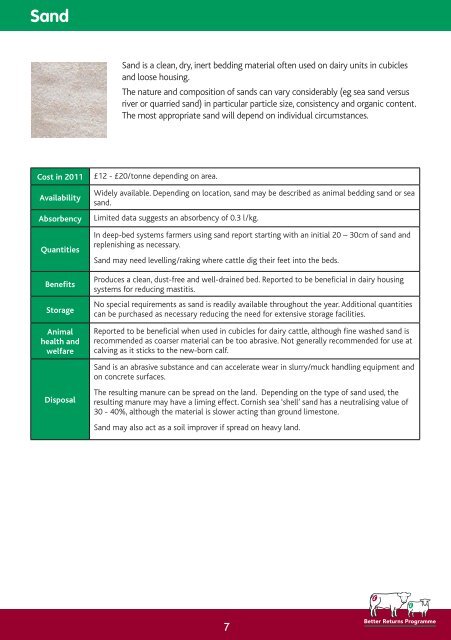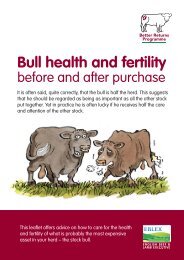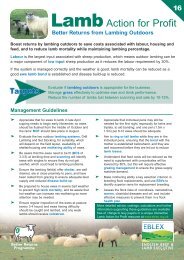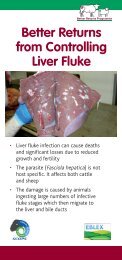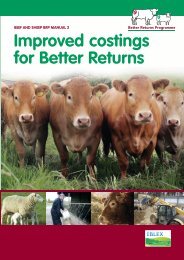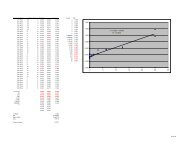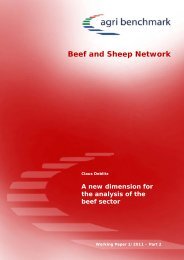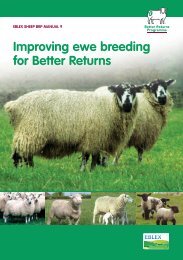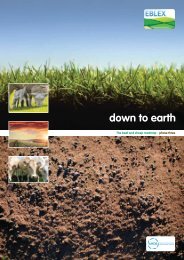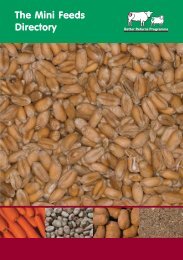Bedding materials directory - Eblex
Bedding materials directory - Eblex
Bedding materials directory - Eblex
You also want an ePaper? Increase the reach of your titles
YUMPU automatically turns print PDFs into web optimized ePapers that Google loves.
Sand<br />
Sand is a clean, dry, inert bedding material often used on dairy units in cubicles<br />
and loose housing.<br />
The nature and composition of sands can vary considerably (eg sea sand versus<br />
river or quarried sand) in particular particle size, consistency and organic content.<br />
The most appropriate sand will depend on individual circumstances.<br />
Cost in 2011 £12 - £20/tonne depending on area.<br />
Availability<br />
Widely available. Depending on location, sand may be described as animal bedding sand or sea<br />
sand.<br />
Absorbency Limited data suggests an absorbency of 0.3 l/kg.<br />
Quantities<br />
Benefits<br />
Storage<br />
Animal<br />
health and<br />
welfare<br />
Disposal<br />
In deep-bed systems farmers using sand report starting with an initial 20 – 30cm of sand and<br />
replenishing as necessary.<br />
Sand may need levelling/raking where cattle dig their feet into the beds.<br />
Produces a clean, dust-free and well-drained bed. Reported to be beneficial in dairy housing<br />
systems for reducing mastitis.<br />
No special requirements as sand is readily available throughout the year. Additional quantities<br />
can be purchased as necessary reducing the need for extensive storage facilities.<br />
Reported to be beneficial when used in cubicles for dairy cattle, although fine washed sand is<br />
recommended as coarser material can be too abrasive. Not generally recommended for use at<br />
calving as it sticks to the new-born calf.<br />
Sand is an abrasive substance and can accelerate wear in slurry/muck handling equipment and<br />
on concrete surfaces.<br />
The resulting manure can be spread on the land. Depending on the type of sand used, the<br />
resulting manure may have a liming effect. Cornish sea ‘shell’ sand has a neutralising value of<br />
30 - 40%, although the material is slower acting than ground limestone.<br />
Sand may also act as a soil improver if spread on heavy land.<br />
7


